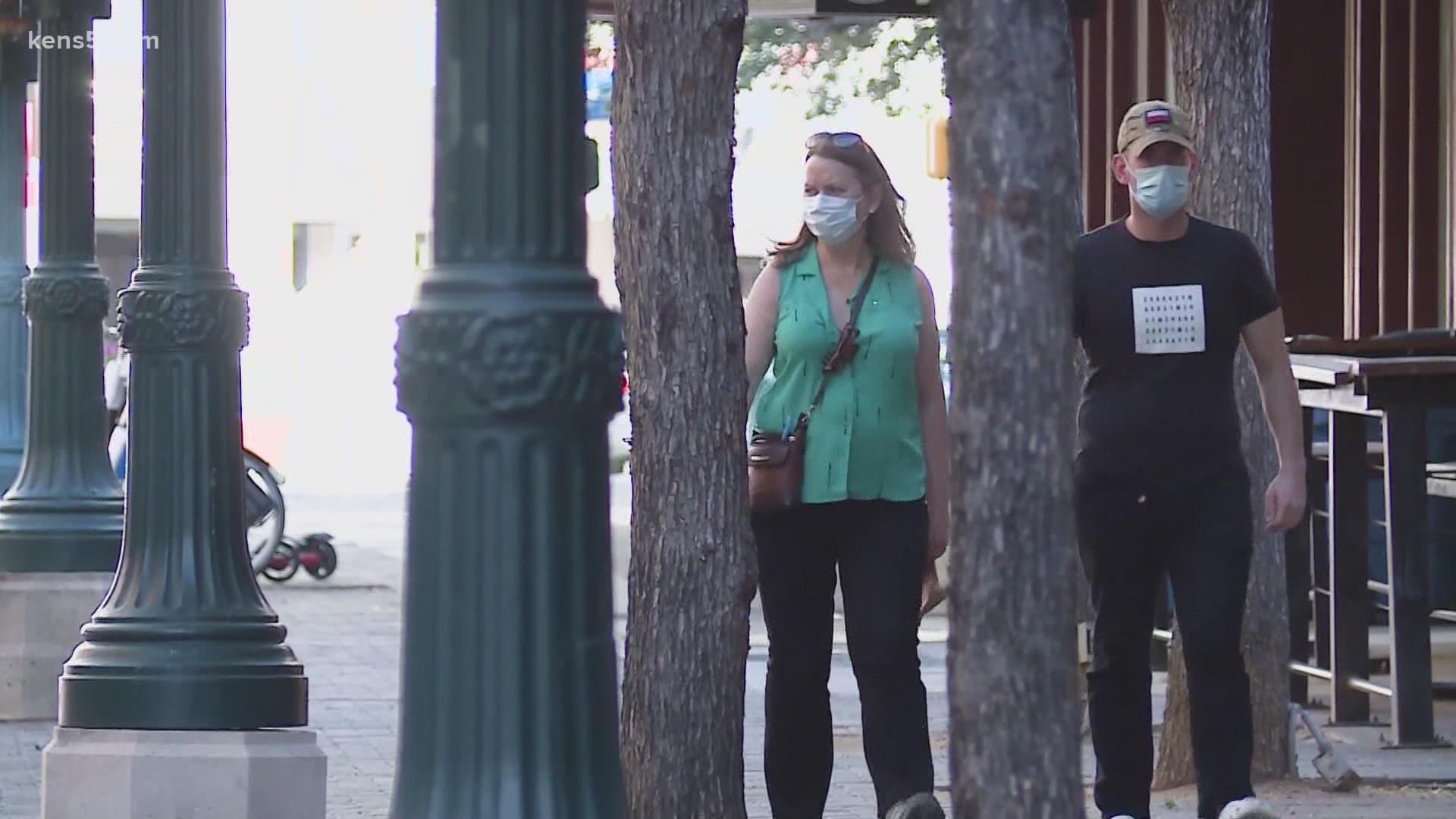SAN ANTONIO — According to a new study from researchers at the University of Texas at San Antonio, the coronavirus may spread farther outside than originally thought, particularly during certain weather conditions.
UTSA Associate Professor of Mechanical Engineering Kiran Bhaganagar wanted to find the answer to an important question. How easily can the coronavirus spread outside?
"What happens when an infected person releases a sneeze or a cough outdoors?" she said. "Does it get diluted right away? Does it get mixed with the surrounding air and get washed away? Can there be any potential harm?"
Several months ago, Bhaganagar got to work. She wanted to see if air currents play a role in transmitting the virus. Her main focus for the study consisted of New York City, a major hotspot for the virus earlier this year.
She used a real-time simulation of a coronavirus-filled cough released in the atmosphere mixed with weather conditions.
Essentially, the study found that when wind was low, the virus could live up to 30 minutes in the air and could travel up to one mile outdoors. However, when wind speeds were stronger, it was less likely for the virus to spread.
"If you have high winds, it gets blown away very quickly," she said. '"Within a few seconds, it gets diluted. So, even though it is there that it is that time scale that makes a difference. Will it get diluted in a second or will it get diluted in 30 minutes is what makes a difference."
Bhaganagar's research suggests that, when it comes to slower coronavirus spread outside: The stronger the wind, the better.
"So that it can easily disperse much faster and it's not that low; stagnant low windy days, we don't want many of those," she said.
According to the findings of the study, six feet of social distancing may not be as adequate for outdoor areas. Bhaganagar also repeated that wearing a mask outside is the best protection.
The full research was published here.

